How to choose a water filter: types of purification systems and their features
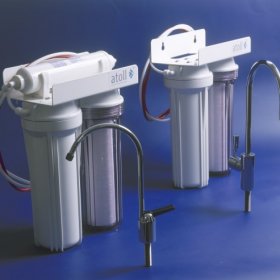
The World Health Organization notes that most human ailments are caused by poor quality drinking water. And that even a “respectable” looking liquid can conceal a lot of harmful components. For all those who value their own health and the health of their loved ones, experts recommend purchasing water filters - we will tell you how to choose them.
Content
Methods for purifying water from a well or water supply system
To purify water from harmful substances, it is necessary to pass it through a special medium - this is the principle of filtration technology. Depending on the type of medium used, there is a change in the properties of the liquid. Different filters use their work resources. To ensure the acceptable content of impurities in the liquid, they must be changed before the resource is completely exhausted.
Mechanical
Mechanical filtration is carried out in order to remove insoluble mineral and organic impurities from water. A positive quality of this process is the ability to use it at normal temperature without adding chemicals. Typically, this treatment is a preliminary, in rare cases, the final method of water treatment.
Sorption
Sorption purification of a liquid implies the use of porous materials that bind and retain impurities. Carbon filler is often used. It is effectively used in the presence of inorganic and organic substances in water, as well as chlorine compounds.
The main disadvantage of sorption filters is the very large dimensions of these devices. The filling of them takes place in several layers to ensure the most complete release from hazardous substances.
Charcoal filters require proper care.Only professional service guarantees high-quality and efficient filtration. Since bacteria can settle in the pores of the coal to rinse it, use hot water.
Ion exchange cleaning
The ozone used in this filtration acts as an oxidizing agent, which, when passing through water, quickly and efficiently cleans it of bacteria, viruses and parasites.
However, ion-exchange purification alone will not be enough, since such filtration:
- does not remove heavy metals, minerals and pesticides;
- ozone, unlike chlorine similar in effect, decomposes very quickly and there is no residual cleaning effect.
Also, ozonation of water will cost a lot, for this reason it is not a good idea to use ion-exchange purification at home.
Membrane
With membrane filtration, high purification is ensured due to the exact division into elements of impurities present in the liquid. The main advantage of using membranes is that impurities will not remain there, their removal is due to the drainage system.
However, this method of water purification has 1 nuance: during processing, the accumulation of impurities occurs extremely close to the membrane itself. A similar phenomenon is called concentration polarization, which can affect the filtration results and reduce the properties of the membrane.
Electrochemical
During electrochemical purification of water, an electric current passes through it, as a result of which the impurities contained in the liquid usually decompose into non-toxic substances.
The main advantages of this method are the small size of the complex, ease of operation, lack of need for reagents, effective bactericidal cleaning. However, there are certain disadvantages, namely, low productivity and high energy intensity.
UV disinfection
UV disinfection is considered universal because it destroys all types of contaminants. The environmental friendliness of the cleaning method, its low cost and the lack of need for expensive after-sales service are also noted. After filtration, the water structure does not change, and all useful elements are stored in it.
Which cartridges to choose
The choice of cartridge will depend on the filter used and on what kind of result you want to achieve.
For jugs there are cartridges with several types of cleaning, in flow and main lines each type of cartridge is designed for a certain type of cleaning, there is also a comprehensive cleaning.
Depending on the type of cartridge, it can perform one of the functions listed above.
When choosing, consider a few simple rules:
- mechanical cleaning is required with a filter fineness of 1 or 5 microns;
- on the riser, water must pass through a mechanical deep cleaning of 10 or 100 microns;
- if you want to get rid of iron, choose a cartridge containing components designed for this;
- for softening, it is better to take cartridges with ion-exchange resin;
- to improve the taste of water and clean it of chemical impurities, pay attention to carbon cartridges.
The choice of system depending on water pollution
The efficiency of the use of the purification system and the quality of the liquid filtration depends on the specificity of the existing pollution. Before deciding on a water filter, you need to carry out a comprehensive flowing water analysis on impurities. Only after that it will become clear what to choose.
| Problem | Which filter to use |
| Corrosive Active Neutral Acid Water | Ion exchange filter and reverse osmosis system |
| High hardness water | |
| Insoluble particles, sand, etc. | Mechanical filtration |
| There is a fishy or woody smell | Sorption and UVdisinfector |
| Smell of chlorine | |
| Hydrogen sulfide odor | |
| Chemical smell of detergents | Sorption filter |
| The smell of oil | Reverse Osmosis Filtering |
| Water is unclear and smells like methane | |
| Phenolic odor | |
| Salty water | Ion exchange filter |
| High acidity | Sorption filter |
Additional parameters to keep in mind when choosing a filter
Now you should familiarize yourself with additional parameters that you need to pay attention to when you move on to choosing a filter for water purification.
Cold and hot water filtration
Most purifiers are designed to filter cold water. The maximum allowable temperature in this case should not exceed 400C. For this reason, if you want to purify hot water, then you need to look for filters with a high temperature limit.
Filter module performance and resources
Under the performance of the filter is meant its ability to pass and purify a certain amount of water per minute. This indicator is minimal for reverse osmosis systems, since it takes a lot of time for the liquid to pass through the filtering membrane. So, when choosing a filter, you need to decide how often it will be used and how much water will need to be cleaned per day.
Almost everyone has a filter module, designed to clean a specific volume of water. As soon as its resource is exhausted, it will not be able to provide adequate water quality and it will have to be replaced.
Supplies Availability
It is necessary to pay attention to the cost of filtering modules - cartridges, since in most filters they quickly exhaust their working life, which means that they will have to pay a lot.
Manufacturer's choice
It is no secret that both domestic and foreign companies are engaged in the production of filtration units. Some have been realizing themselves in this area for more than a decade, while others are only stepping on this path, without focusing on water purification systems.
If you can’t decide which is better, we recommend that you abandon the stereotypes that “they say everything foreign is better, better, more reliable”, and choose products from experienced companies with a name and positive reviews. By the way, there are enough of these on the Russian market. It is enough to look into the rating of water filters to understand - “our” companies are able to make solid, durable units.
It is better to stop the choice on products whose manufacturers have been working in this market for a long time and have been able to recommend themselves well. Each of them has its own developments for different cleaning systems.
Cost
If the price of the desired model is very different from the average market value, then you need to think about where this product comes from. If this product was purchased from an official supplier, but the price is very different from the prices in other stores, then this is a complete fake.
Certificate availability
If you doubt the quality of the goods, you can ask the seller for a quality certificate. Moreover, this document should be genuine, and not an ordinary photocopy.
Which water purification filter to choose for an apartment and a house
These units may vary in technical specifications and device. Therefore, when deciding which filter to choose for a house, apartment or summer house, it is very important to clearly define your needs and objectively coordinate them with real possibilities.
The effectiveness of the filter depends on which filter is selected in each case.Modern manufacturers are ready to offer many models of different treatment equipment and filters.
Prefilters
Prefilters are used to purify water from solid impurities that significantly impair its taste and can harm household appliances. When choosing a specific model, consider the amount of water consumed.
Mud Filters
Mud filters are used for mechanical cleaning of water. She, passing through a special mesh, leaves solid impurities on it. Mud can be used for pre-treatment of cold and even hot water up to 150 ° C.
Jug
These are the most primitive devices, the resource of their cartridges is very small (as a rule, up to three hundred liters). Their main purpose is to rid the water of chlorine and unpleasant odors, and partly of hardness. Pitchers are mobile and compact; they can be successfully operated both at home and on the road. With them, clean water is always at hand. Cartridge replacement frequency - once a month. The maximum degree of purification is 20 microns.
Benefits:
- does not need to be connected to a water supply system;
- extremely easy to use, does not require human control.
Disadvantages:
- in them the degree of purification is an order of magnitude lower than in those “integrated” into the water supply system;
- small volumes of purified water.
The amount of liquid purified at one time cannot exceed the volume of the jug itself — usually one to two liters. That is, if three liters of water is required for cooking, one way or another the jug will have to be filled twice. And this is not always convenient.
A jug filter is the best option for those who have a fairly limited budget or, due to the small size of the kitchen, cannot allocate a place under the sink for a stationary system.
Crane Water Purifiers
These are small-sized devices, dressing directly on the crane. Their advantages are low price and the ability to take with you on trips.
Disadvantages - low sorbent volume and low productivity - up to half a liter per minute (if the advertising slogans of manufacturers say that you can do it faster, do not believe it). And here, containers for storing purified liquid are also needed.
Dispensers
Dispensers are used to carry out post-treatment of drinking water at home. They are easy to use, since you do not need to connect this filter to the water supply.
The filter eliminates unpleasant aftertaste and odor. Replaceable cartridges can clean solid suspensions, many organic and inorganic impurities and soften water.
Flowing to the sink
Such water purifiers are not put on the tap itself, but are placed nearby. Such installations are attached to the crane using a flexible hose.
Their main advantages are sufficient productivity (higher than that of the nozzle on the crane) - up to one and a half liters per minute. Plus, there is no need for separate tanks for purified water.
But such a filter occupies a precious place in the sink. True, if he is beautiful, this item can be excluded from the rank of shortcomings. Well, it should be remembered that it requires connection and disconnection after water treatment.
Flowing water filters for washing
The stationary filter under the sink is built into the water supply. The unit itself is located under the sink, and a separate faucet is brought out onto it - exclusively for purified water. Cartridge change frequency - once every six months. The maximum degree of purification is 0.05-1 microns.
Benefits:
- high degree of water purification;
- sufficient performance;
- great resource;
- the presence of a separate tap for purified liquid;
- the convenience of use;
- the required volume of purified water is always available;
- location under the sink - no clutter of the workspace.
The disadvantage is the high price.
Stationary filters are chosen by those users who understand the value and importance of highly purified water and are willing to invest in their health.
Softeners
Water softens as a result of a decrease in the amount of salts, usually chlorides and sulfates. For this, replaceable filters with a cation exchange resin adsorbing salts are used, instead of saturating water with hydrogen and sodium ions. The downside is that softeners do not cleanse bacteria and metals.
Home Reverse Osmosis Systems
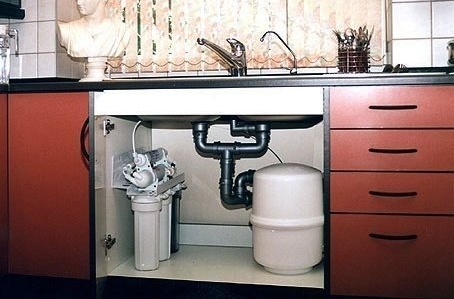
Thanks to reverse osmosis systems, it became possible to obtain water at home that is not inferior in quality to bottled water
These are perhaps the best water purifiers to date. They allow you to remove not only the excess hardness of water, excess iron and chlorine, but also all kinds of bacteria and viruses.
A key filtering component of such systems is the reverse osmosis membrane. Its pores are significantly smaller than most known viruses, therefore, your body will be protected as reliably as possible.
The main advantages of reverse osmosis systems over other treatment plants:
- highest degree of purification;
- low cost of purified water;
- a constant supply of fluid (ten liters).
The complete set of such installations looks like this:
- pre-cartridge system;
- reverse osmosis membrane;
- special post-filter.
Reverse osmosis systems lead the rating - and this is not surprising; their effectiveness is confirmed by numerous studies and impressions of ordinary users.
These units, if desired, can be understaffed with a structurizer and mineralizer - this will make the water rich in useful minerals, capable of improving digestion and blood circulation.
The maximum degree of purification of such systems is 0.0001 microns. The frequency of replacing the reverse osmosis membrane is once every three years. The frequency of replacing post-cleaning cartridges is once a year.
Reverse osmosis systems are chosen by people who want to constantly consume highly purified water without overpaying for it (bottled products).
Trunk
Filters of this type are mounted directly in the water supply. They are designed to purify water from mechanical formations and chemical compounds. By type, they are divided into coarse and fine cleaning systems, as well as for softening water.
The most suitable apartments or houses of medium size are units that can skip from 20 to 50 liters per minute. But in some cases, the calculation of the required power is individual and depends on the maximum amount of water consumption. In addition, it must be borne in mind that the pressure in the water supply system must correspond to 0.1 - 0.5 bar.
The service life depends on the intensity of use and can even be unlimited with proper operation, with the condition that you need to wash the cleaning cells.
Benefits:
- thanks to a comprehensive cleaning of bacteria and technical impurities, the palatability of water improves;
- significantly increase the life of water pipes and household appliances;
- it is small in size, easy to use, and filter components can be replaced on their own;
- Another advantage of these units is the low price of replaceable cartridges.
There may be one drawback - the installation process. If you have not been involved in the installation and connection of the water supply, then most likely you will need the help of a specialist. But this is not such a serious minus.
Fibos-type main filters with flushing system
Unlike sumps and strainers, Fibos filters fine-tune water. Their filter element is made in the form of a cylinder with a wound coil to a coil of ultra-thin microwire. The distance between adjacent turns in the winding does not exceed 1 micron. This allows you to retain not only dirt particles, but also 99% of the bacteria that form a biofilm on these particles. To prevent the Fibos filter element from becoming contaminated, the microwire is coated with a thin layer of glass insulation to prevent particles in the water from sticking to the microwire.
A microwire is a unique technology developed back in the USSR for defense and space purposes; it is the only mass production in the world.
Fibos filters are directly flushed through an outlet tap into any suitable cookware or sewer system. An additional device allows you to automate the washing process.
The performance of the Fibos filter range has wide limits. Practically without reducing the pressure in the water supply system, filters purify 5 liters of water per minute when used in the kitchen under the sink, 16 l / min when cleaning in the apartment or at the cottage, 50 l / min in the cottages, 83 l / min in the cottages, pools , up to 1000 l / min in production.
Since Fibos does fine water purification, if necessary, inexpensive cartridge filters can be installed after it to soften water, lower iron content, and remove chlorine. The life of the cartridges in this case is significantly increased.
Postfilters
Post-filters are used in reverse osmosis systems in order to eliminate an unpleasant odor and improve the taste of water. The active element here is activated carbon. Also, mineralizer filters are used in these systems. They are necessary to restore the natural mineralogical composition of water, which is disturbed after the passage of fluid through the membrane.
Video: Overview of Cleaning Filters
General requirements for water treatment systems for a house or apartment
Since the filter is constantly in contact with drinking water, it must be made of environmentally friendly, safe materials that do not emit any chemistry or a characteristic odor. Just smell the plastic parts and you will understand whether the product is in front of you or not.
For a stationary system connected to a water supply system, strong, durable housing materials are very important. Modern high-quality water purifiers are made of glass-filled plastic - it is much better than usual.
The choice of a water filter should be entirely based on the principles of common sense - it’s not naive to assume that the jug type unit will serve you for ten years. But if you are single, accustomed to an active lifestyle just such (or a nozzle on the crane) will suit you best. For a large family, it is almost impossible to overestimate the convenience and significance of a stationary device.
General recommendations and rules for the operation of filtration systems
Any of the cartridges used in the cleaning system has its own resource, which, if exhausted, should be replaced. Usually it is expressed in the volume of liters of treated liquid or the time of use, but taking into account the average norms of water consumption per day. The filters used for mechanical cleaning sometimes need to be cleaned of accumulated dirt. If the operating rules are not followed, then the system will pollute the water instead of cleaning it.
The material is updated 02.02.2018
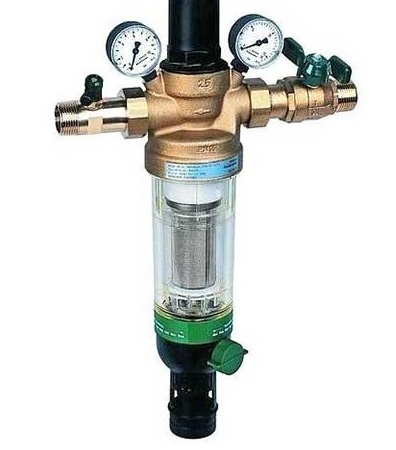
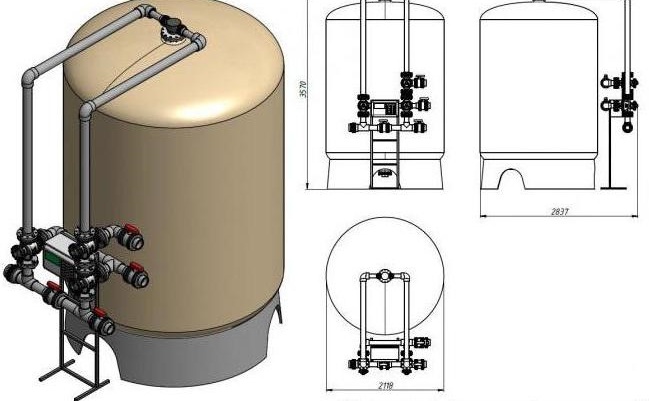
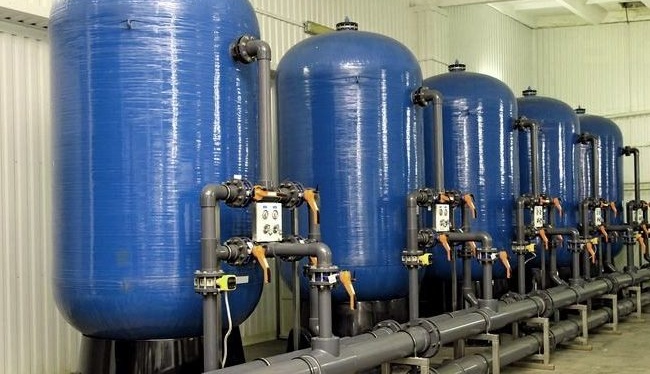
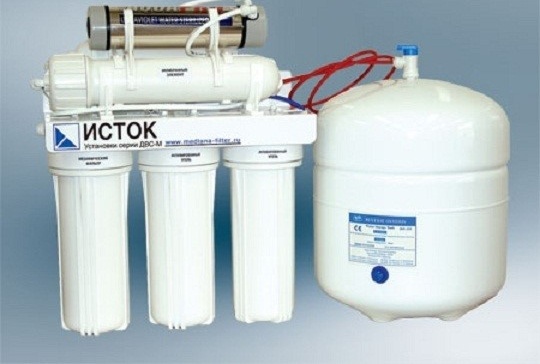
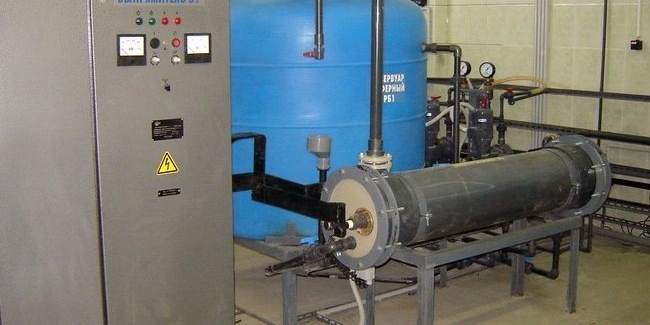
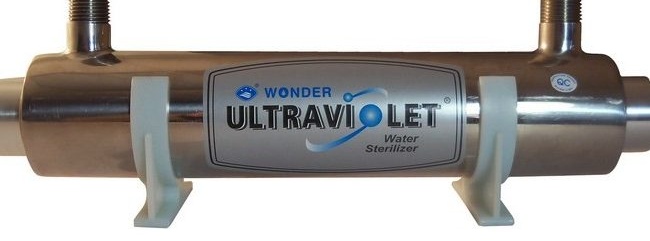
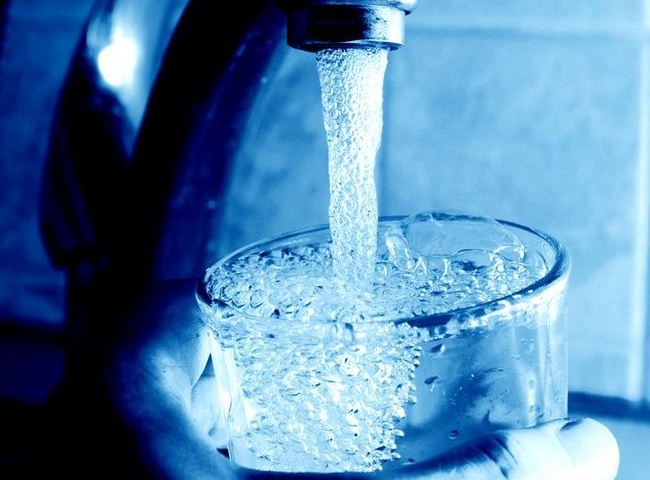
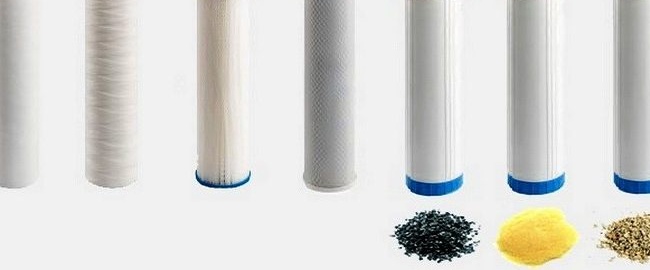
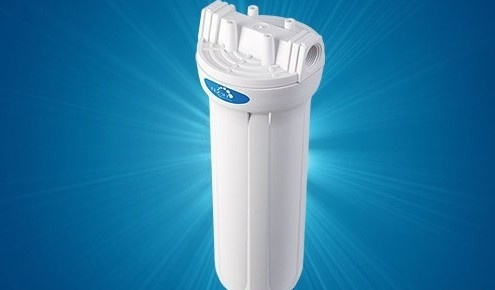
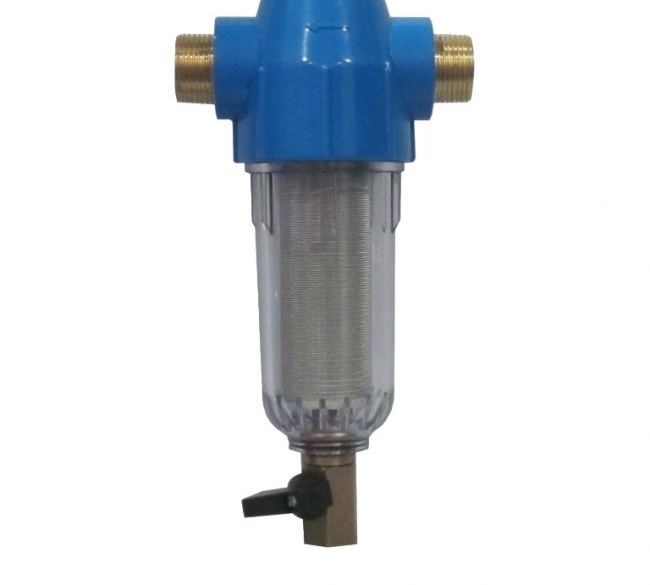
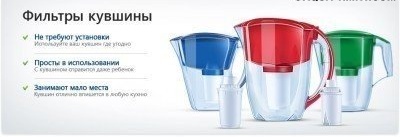
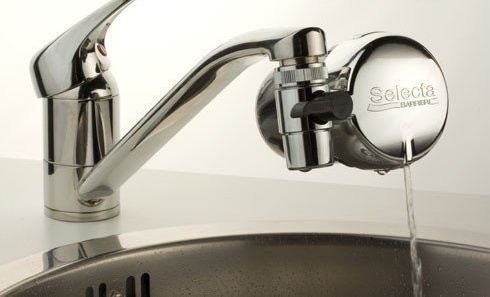
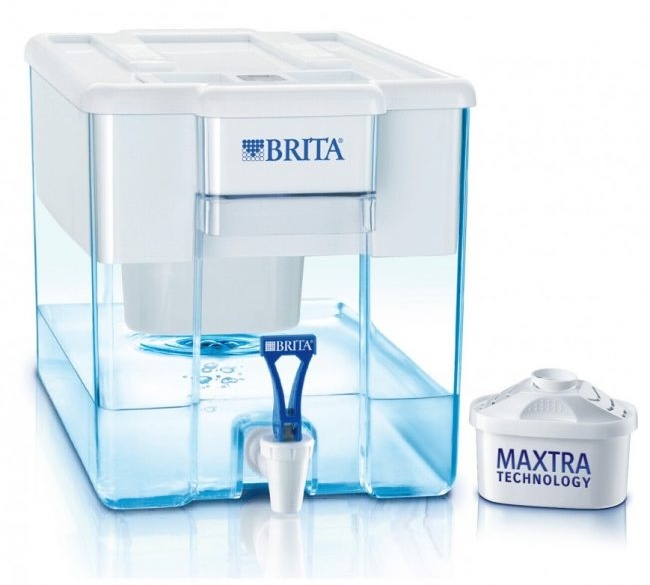
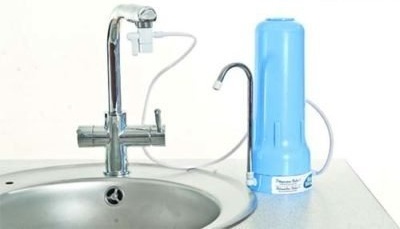
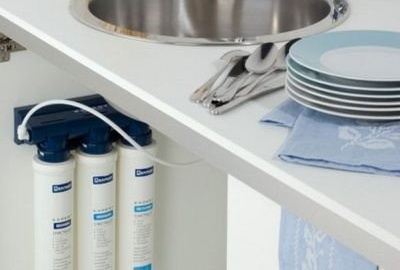
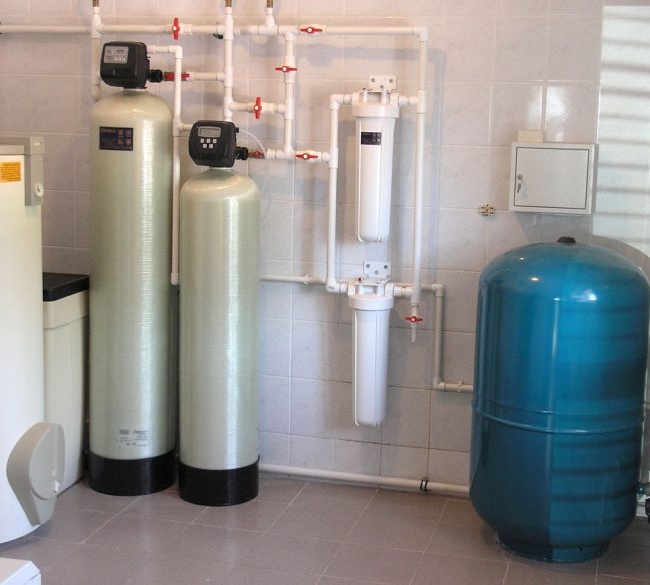


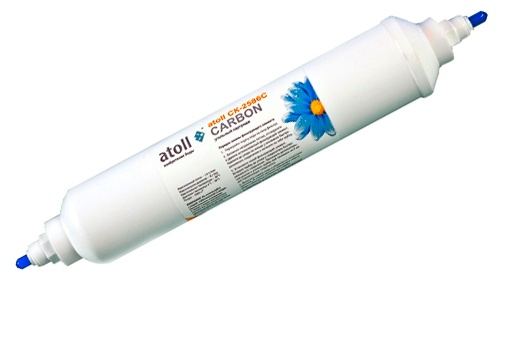
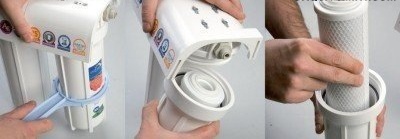

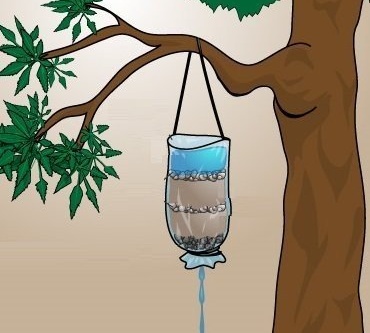

39 comments